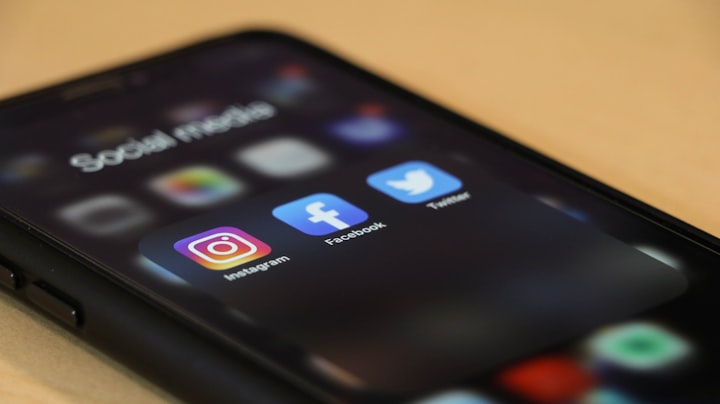Is Social Media Ruining Your Life?
Understanding and Overcoming Social Media Addiction
Greetings, dear readers! In today's digital age, our relationship with technology and social media has become increasingly intertwined. Did you know that on average, we touch our phones around 2,600 times a day? Furthermore, research indicates that post-Covid-19, the average Indian spends a staggering 7 hours a day on their screens. This excessive screen time not only impacts various aspects of our lives but also takes a toll on our mental well-being. In this blog post, we'll delve into the intricate workings of social media addiction, explore its impact on our lives, and most importantly, provide actionable strategies to overcome it.
1. Understanding Dopamine and Addiction:
To comprehend social media addiction, we must first grasp the role of dopamine, a neurotransmitter intricately linked to motivation and reward. Contrary to popular belief, dopamine isn't solely responsible for pleasure; rather, it's associated with anticipation and motivation. When we engage in activities that we anticipate will bring happiness, dopamine levels rise, creating a sense of excitement and anticipation. However, when the reward becomes predictable and repetitive, dopamine levels decrease, leading to a chronic dopamine deficit state. This phenomenon explains why individuals require increasingly stimulating experiences to achieve the same level of satisfaction, perpetuating the cycle of addiction.
2. The Hedonic Treadmill:
Social media addiction follows a pattern known as the hedonic treadmill. Initially, receiving likes, comments, and messages on social media platforms triggers dopamine release, resulting in pleasure. However, over time, the novelty wears off, requiring more stimuli to experience the same level of happiness. This constant pursuit of validation and rewards perpetuates the addiction cycle, leading individuals to spend excessive amounts of time seeking fleeting moments of satisfaction.
3. Factors Contributing to Social Media Addiction:
Two primary factors contribute to social media addiction: ease of access and speedy rewards. Social media platforms offer effortless accessibility, allowing users to indulge with a simple tap. Moreover, the instant gratification provided by likes, comments, and notifications reinforces addictive behavior. Apps like TikTok exemplify this phenomenon, offering seamless browsing and rapid rewards, making them highly addictive. The addictive nature of social media lies in its ability to hijack our dopamine systems, keeping us hooked with the promise of instant gratification.
4. Impact and Consequences:
Social media addiction not only consumes excessive time but also fosters radicalization and insecurity. Algorithmic filtering creates echo chambers, reinforcing existing beliefs and ideologies. Moreover, comparing oneself to curated online personas breeds insecurity and depression, particularly among teenagers. Social media platforms prioritize user engagement, often at the expense of mental well-being, perpetuating addictive behaviors. The constant bombardment of curated content and notifications creates a false sense of connection while eroding real-world relationships and experiences.
5. Overcoming Social Media Addiction:
Combatting social media addiction requires a multi-faceted approach focused on reducing ease of access and eliminating speedy rewards. Strategies include deleting social media apps, disabling notifications, and utilizing private browsing modes. By making it more challenging to engage with social media, individuals can gradually break free from addictive patterns and reclaim control over their time and attention. Additionally, cultivating real-world connections, pursuing meaningful activities, and practicing mindfulness can help individuals establish healthier habits and reduce reliance on social media for validation and entertainment.
● Conclusion:
Social media addiction poses significant challenges in today's society, impacting mental health and overall well-being. By understanding the underlying mechanisms and implementing effective strategies, individuals can mitigate the negative effects of excessive screen time. Remember, moderation is key, and by prioritizing real-world connections and meaningful activities, we can foster a healthier relationship with technology. Let's embark on this journey together to navigate the digital maze and reclaim control over our lives. Thank you for joining us on this quest to overcome social media addiction.






Comments
There are no comments for this story
Be the first to respond and start the conversation.